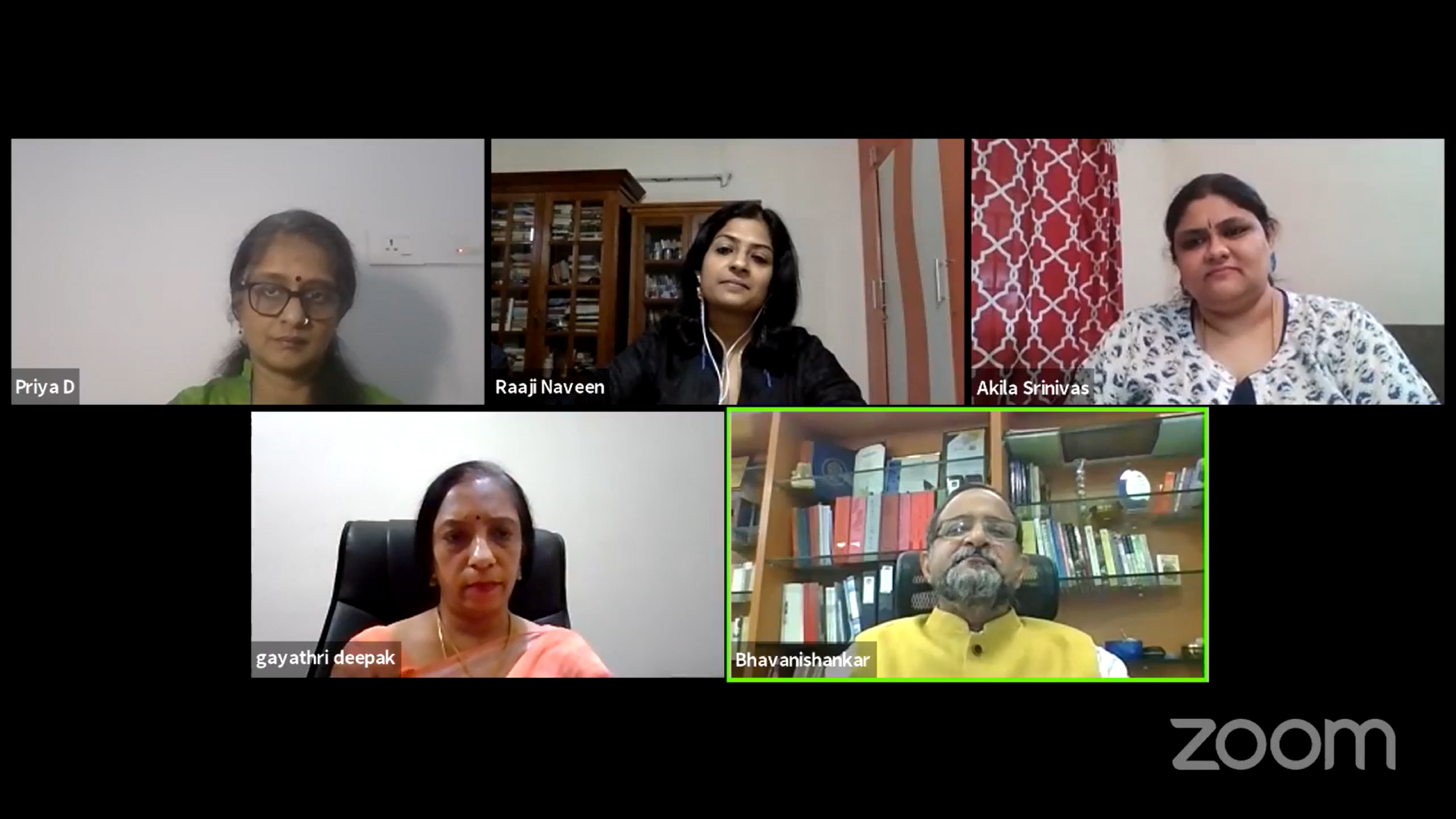The most fulfilling part of being an academician is the opportunities we have to make our world brighter and kinder, one child at a time. Young learners are far more capable of taking control of their lives and charting their career paths than we believe. I recently participated in a panel discussion organized by Chetana alongside my fellow-educators, Dr. Gayathri Deepak, Dr. Bhavani Shankar, and Ms. Priya Dixit and Ms. Akila Srinivas. During the course of the discussion, we covered some pertinent areas, which I have presented in this post.
What is self-determined learning? What are the practical ways in which schools can empower teachers and parents to be partners when it comes to guiding and supporting a student’s interests, learning, and ambition?
I am a big believer in children determining their own course and schools and parents just being facilitators to “enable” learning. Fundamentally, every child wants to do well and every child inherently experiences a need for growth.
In their journeys of learning, children possess:
- Competence - they feel they have developed the necessary skills
- Capability - they are able to demonstrate their competence in a variety of settings
- Connectedness - they feel a sense of belonging in the field of study
- Control - they are allowed and encouraged to take charge of their own goals and behaviours
Of these, control is essential for them to feel the other three. Without control, they will have no motivation to develop new skills or know more, because someone else is driving the agenda all the time. Also, without control, they will only consume what others offer unquestioningly and never develop into confident and purposeful citizens of this world.
We cannot expect children to become responsible, caring, or compassionate citizens unless we encourage them to determine their own paths. And that is why I believe in self-determined learning systems.
How can educators set the ball rolling practically?
- Encourage children to try their hands at things they are interested in through small modular engagements.
- Be coaches instead of teachers; listen to them; learn with them through collaboration; and provide a supportive ecosystem for learning. Where it is possible, introduce them to industry experts who can share more.
- Provide guidance and tools to help learners see their own progress and self reflect on their next steps.
- Foster collaboration among peers and encourage learners to develop relatedness which is important to foster a sense of belonging and connection.
- Provide non-judgemental spaces for learners to feel confident of voicing out their aspirations and expressing their choices.
- Look to build upon their innate skills, knowledge, and attitudes. It’s a strengths-based approach. We cannot build performance on weaknesses, one can build performance only on strengths. And this is often ignored by schools because learner’s strengths are considered more or less irrelevant to what they are looking to do.
- Above all these, it is important that we build learning to learn skills that will help children become lifelong learners - something that is constantly needed in an ever-changing world.

So as industries evolve, we need to move with the times, and also understand the changing nature of the learners of today and adapt to their learning needs. We need to re-engineer education and turn it right side up, and begin with the learner in mind, think about how to enable the learner to thrive in this new world we are in. Automatically then, industry and society will see greater value in them.
It is in these thoughts and actions that we will make education relevant for our learners again.
Therefore, a total overhaul of the curriculum and a fundamental shift in the mindset of parents, teachers, and schools is what will serve both the learners of today and the system as a whole
Follow Chetana and Beyond 8 on Facebook for more insights on modern education.
